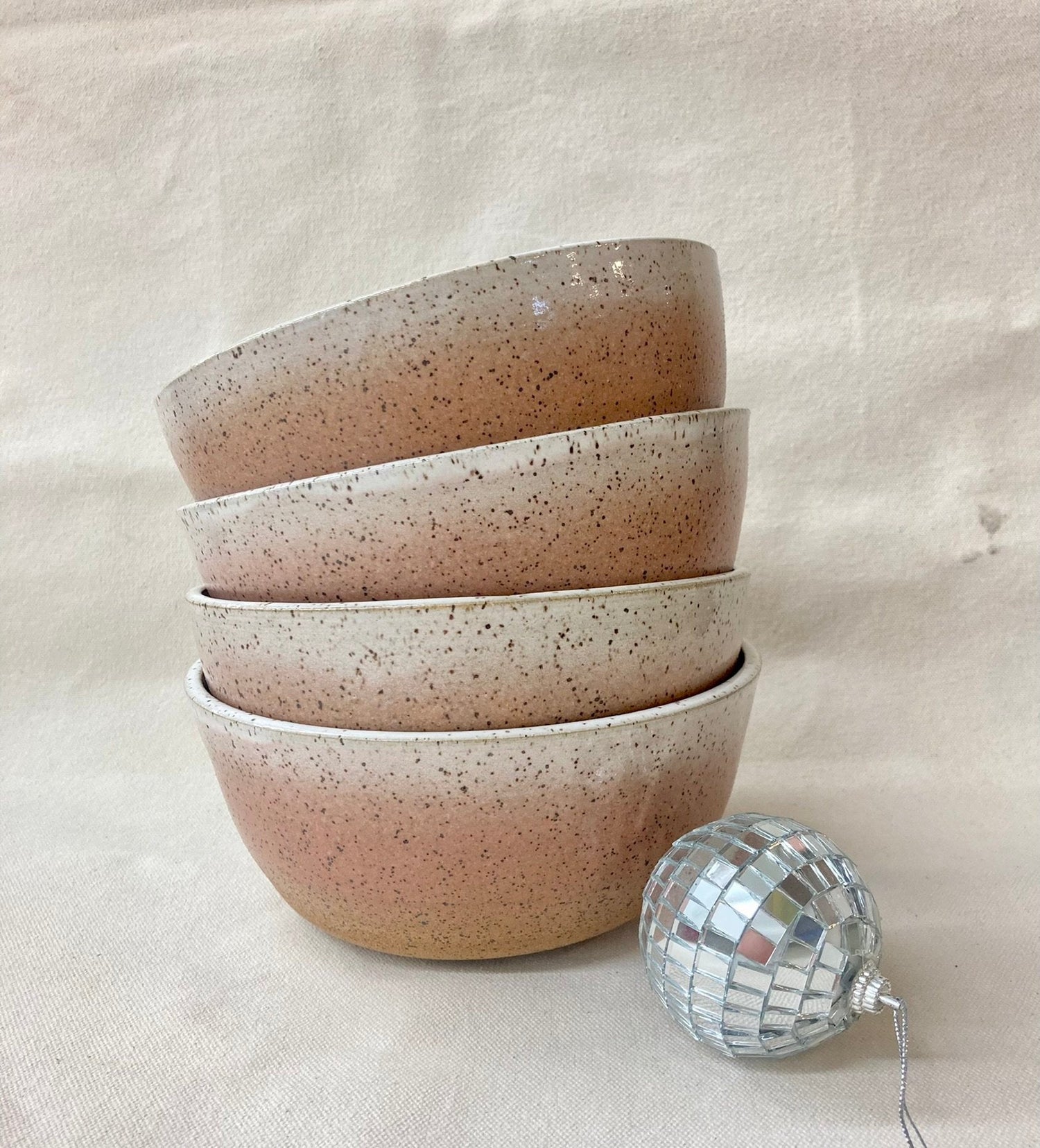Apt. 2: 17 Years and 9 Apartments in Portland
Share
The 83rd and Davis House: 2007
Note: Some names are changed in this essay to maintain anonymity.
The summer of 2007 I returned to Portland with $1,000 in cash and the promise of a room in a house for $290 a month. I had just spent four months in Switzerland at a Christian study center and one month in Birmingham, Alabama, where I lived with my parents and worked at a French restaurant called Chez Lulu. I saved my tips and texted with a friend in Portland who needed a roommate to join her and four other women in a house on NE 83rd and Davis. I stuck around Birmingham long enough to save some money and attend a couple of weddings and then flew back to the West coast in June.
The house was in a neighborhood now called Montavilla, but in 2007 I don’t remember anyone calling it that. We just said “off 82nd” and that was all the information you needed. Fast forward to 2023 and this area is packed with young families and first time home-owners; when I lived there it was a little seedier. We had all been followed home, we regularly saw sex workers soliciting customers on 82nd ave., and to me, a bus and bike commuter, it felt impossibly far from the center of the city. Nonetheless, I was excited to live somewhere cheap with a bunch of my friends.
Officially, I shared the house with four other women, but when I moved in, we had one extra person crashing on the couch. I knew Amanda from before I’d moved because she had lived at an artist live/work space and venue where I’d often hung out. Right before I moved into the 83rd and Davis house, she had become suicidal and started self harming. She needed to be around people, and while I can’t remember the exact details of how she ended up at our place, she crashed on our couch for a few weeks that summer before going into an intensive outpatient program where she was eventually given a borderline personality disorder diagnosis. I knew Amanda, in a roundabout way, the same way I knew all my new roommates and many of my friends during that time: through the church that I had been involved with since I moved to Portland.
I mostly didn’t go to the actual church services, but instead went to a small community called a “home group,” which had an unusually high number of people with untreated mental health or substance abuse problems and a haunting number of young deaths. Maybe this is because the church was a welcoming place, and people felt that they could come there for acceptance. But a less generous explanation is that the church offered the false promise of healing through spirituality and faith, when what people really needed was medical and mental health treatment and a community that encouraged the appropriate professional interventions. The home group once addressed a man struggling with substance abuse by simply making him confess his “sin” to the group. Unsurprisingly it backfired and turned into a fight followed by a series of vicious emails about proper “church discipline.” Another woman from the group died in the hospital because of a severe eating disorder. Several people from the group committed suicide. At one point, a kid named Robert started showing up, and the group listened supportively as he described his intense spiritual visions. We later learned that he had bipolar disorder and was likely experiencing hallucinations after going off his meds and staying awake for days.
Over the years, I’ve often thought of this period of my life as being especially carefree. I didn’t yet have debt from the graduate degree I would later pursue. I worked part time as a barista, and the cost of living was low enough that a person could work part time as a barista and still live comfortably. But as I reflect on the details of this period, I am reminded that it was also heavy, dense with people whose suffering chafed against the rigid and simplistic solutions of the Christian church that I found myself identifying with less and less. As I combed through old emails to jog my memory on what was going on during those years, I found the email where my friend Katie told me about Robert’s suicide after he went off of his medication. Robert wasn’t just a kid who came to our home community sometimes, he had also been our friend. We’d stayed up all night with Robert (during what I now realize was probably a manic episode) goofing off, listening to music, and getting late night junk food so we could stay awake until sunrise. In Katie’s email she says she hasn’t been able to get in touch with me, my phone was going to voicemail and my text messages going unanswered, and she goes on to tell me about Robert’s suicide and give me the details of his memorial at Laurelhurst park. I had responded to her email immediately, explaining that I’d left my phone in our friend Jordan’s car. As I read this exchange, now, in 2023, my heart sunk. Jordan, too, had died 10 years after this email exchange. He was only 30. Mental health and substance abuse aside, the amount of death in that small home group was astounding. The same married couple hosted our group each week–Jared and Rachel. Jared’s sister (a close friend of my roommate’s) died in a mountain climbing accident on Mount Hood in 2009. And Rachel’s little brother was Jordan, also dead by the age of 30.
Of course, this didn’t all happen in the 4 months that I lived in the 83rd and Davis house. The deaths and the events surrounding them were spread out over years. But everyone who I lived with in that house was someone I’d met through the home group, and the deaths and illnesses are threaded through the years that we lived together. I spent my first month in the house applying for jobs and smoking cigarettes on the porch with Amanda. We sat on an old overstuffed couch, sipping coffee from chipped thrift store mugs and talking about anything but her suicide attempt.
The house was a two story craftsman with ample windows, a wide front porch, and a one car garage that was packed to the brim with my roommate Tiffany’s hoarder aunt’s belongings. Tiffany’s aunt Ginger had been storing her things in our garage since before I moved in, so when I arrived, it was understood that there was no space in the garage. But it was also understood that Ginger was so far gone with her hoarding that she had no idea what was stored where and anything in the garage was fair game. So sometimes we would look through and take things that we liked; it was like shopping in your own home. I got a vintage leather purse, a scarf, and a killer 1950s party dress– tea length black organza with an overlay of black and brown lace–that inspired me to host an absurd “top drawer” party at my friend Robbie’s house. I found the following invitation in my email outbox.
July 24, 2007
it's time for the classiest party the world has ever known.
that's right.
it's the long awaited top drawer party . in case you're unfamiliar with what "top drawer" means, here's an attempt at defining what may be undefinable.
top drawer: adj. n. 1.classy, 2.hip, 3.above average in the zone of class.
here's a list of some different levels of classy as understood by well known classy connoisseurs.
1. crystal city- the epitome of classy. almost unreachable. think serge gainsbourg people.
2. discotheque- the name says it all.
3. fox hunt- the british realm of classy, ie "that fox hunt was top shelf chap." etc.
4. top drawer: the american derivative of the aforementioned british classy rating, "fox hunt." (a reference to and recreation of "top shelf") think mirrors, diamonds, gold, leather and lace....
5. super classy- super classy, as the name suggests, is exploding with class.
I don’t recall making up an entire vocabulary to classify different levels of “top drawer,” but it sounds about right. Here, finally, is the levity and innocence I remember from this period. I couldn't find pictures from the party, but I remember that Robbie decorated by putting little mirrors with mounds of powdered sugar around the house–his nod to an ‘80s cocaine party– and the playlist was heavy with Serge Gainsbourg and Ennio Morricone. I met my soon-to-be boyfriend there. We somehow set up a first date playing tennis, something neither of us knew how to do. He was sweet and funny, but our relationship didn’t last long, and I remember that when we broke up at the end of the summer, I was moping around my room listening to depressing music and one of my roommates came in to ask if everything was okay.
“No,” I mumbled, “me and Luke broke up.”
“Yeah,” she said, “I figured.”
“How’d you know?” I asked, astonished at her clairvoyance.
“The music,” she said, “dead giveaway.”
Fair enough.
My bedroom was small, with a single window facing the neighbor's fence. The double bed was crammed in one corner with boxes of clothes shoved underneath since I coudln’t fit everything in the tiny closet. My bulky desktop computer sat on the floor at the foot of the bed, just under the window, and I would lie on the floor on my stomach with my elbows propped on a pillow to type emails and watch Flight of the Conchords on Youtube. My nearly-40-year-old body now aches at the thought of this, but in 2007, a computer on the hardwood floor was all I needed.
Eventually I got a job at a coffee shop on the other side of town called Coffeehouse Northwest. My friend Weston worked there, and I was hired based entirely on nepotism, but I would stick around for four years. I would set my alarm for 4:30am, put on some clothes that I’d probably taken from aunt Ginger’s stash in the garage, and catch the bus across town at an hour when the only other activity happening in the city was surely illegal. That year, the cafe hosted Thanksgiving, and my roommates and I all went, schlepping our pies and bread rolls across the city to crowd into a tiny cafe under a chintzy twinkling chandelier and celebrate the holiday among friends.
By the next month, we would find a new house closer to the city. We’d rent a Uhaul together, load it up with all of our things and drive across town like a big family. But before we could move our own things, we had to take care of the garage, packed to the brim with aunt Ginger’s hoard. We tried to offload some of it with a garage sale, but in the end we drove the ample remains to Goodwill, donating this baggage that had come to belong to us all. It wasn’t our burden, but together we managed it.

